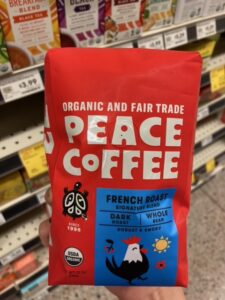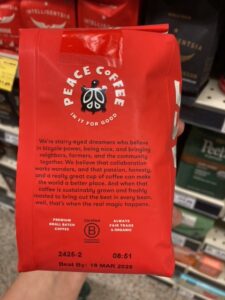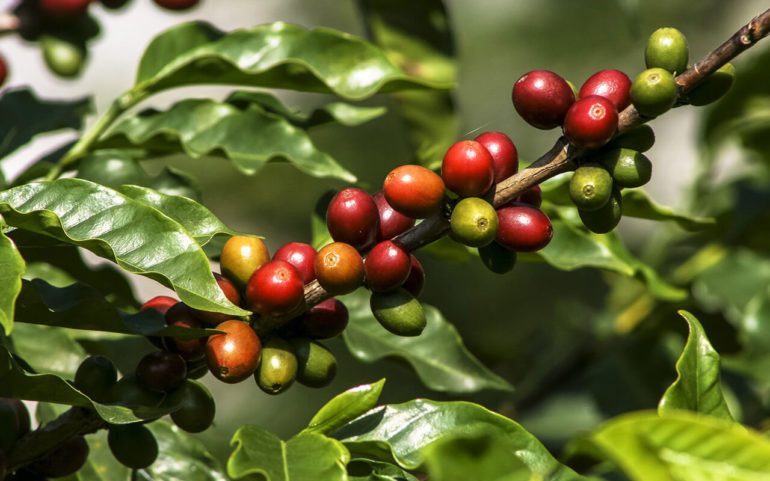Plenty of imported goods claim to be “fair trade”. The definition of something being fair trade means that a trade is made between a developed country and one that is developing where fair prices are paid to the workers who produced it. Many goods like coffee, bananas, chocolate, tea, cotton, honey, rice, spices, dried fruits, wine, oranges, and certain types of nuts and seeds can label themselves fair trade (Wikipedia).
Most of the coffee in the world is grown in South America. It is an intense laborious process, done in extreme heat in which 17 different countries including Brazil, the number one exporter of this bean, have been found to be using child labor. (Food Empowerment Project)
The brand that I picked up at Whole Foods is Peace Coffee and it is straightforward about its claims. It is organic, fair trade, and a B certified company which is run by B lab, a nonprofit organization. A B certified company is one that has been assessed to possibly change some of its methods that relate to social and environmental performances, and anyone can become B certified. (Delawareinc). Although important to note, Nestle (the HUGE corporation continually accused of poor labor and environmental practices) is B certified for some of their companies. With that in mind, it is important to ask ourselves about the validity of these ethical labels and if they are really true to their cause or a way for companies to gain consumer approval.
It’s a luxury that we can go to the grocery store and pick up a bag of beans grown thousands of miles away. Learning about the brands that create our foods is fun and can make one feel empowered about their purchases. The bagged coffee that I usually buy is from the brand Equal Exchange and I found it at Ten Thousand Villages, but Whole Foods is a “greener” store (not really…), so I wanted to check out their options as well, and this brand is cute.



